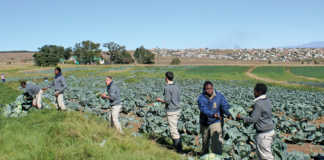The Chief Director of Veterinary Services in the Western Cape, Dr. Gininda Msiza, said that restrictions have been placed on all direct horse movements into the Western Cape AHS Control Area from all other provinces in South Africa. Wouter Kriel, spokesperson for the Western Cape agriculture MEC, Gerrit van Rensburg said a buffer zone, extending from Atlantis towards Cape Town, had been set up to reduce the risk of infected animals contaminating the AHS-free zone.
The rest of the province was declared a control area, and demarcated with signs along major access routes into the Western Cape including on the N1; between Laingsburg and Touws River; on the N2 at Suurbraak; on the N7 at Trawal; and outside Barrydale on the R62. “These restrictions have been instituted due to the increasing number of reported and suspicious cases of AHS in the rest of the country.
“This AHS season, which stretches from January up to June, has already seen 208 cases reported, none of them in the Western Cape, of which 126 were fatal,” said Kriel. He said that due to persistent high rainfall in the interior, the numbers of cases have increased dramatically and were also occurring earlier than in previous years.
According to Kriel, Van Rensburg said horse owners were strongly discouraged from attempting to move horses from anywhere in the infected zone into the Western Cape AHS Control Area as the risk of transmitting the disease was increasing daily. He said the local horse breeding industry was currently under a two year export ban, resulting from of an AHS outbreak in 2011, the first outbreak of the disease in the province since 2007.
In 2011 eight cases of AHS occurred in the Western Cape, resulting in the death of 18 horses (including both AHS confirmed and suspect cases). “We are hopeful to see this ban lifted in June this year after an EU inspection and on condition of no further outbreaks in the controlled area.”
Van Rensburg said another outbreak in the AHS Control Area could potentially result in the death of local horses as well as leading to another two year export ban by the European Union and cause further losses to the equine industry as a whole.
He urged the public to co-operate in adhering to the movement controls as outlined in the Veterinary Notice. Msiza said horse owners were being advised to stable their horses overnight if possible, to ensure all horses were correctly vaccinated and to ensure horses were also treated with insect repellents on a daily basis.











